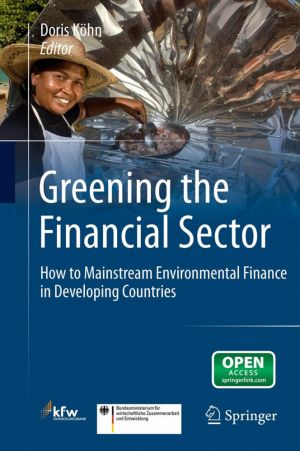- Регистрация
- 27 Авг 2018
- Сообщения
- 39,669
- Реакции
- 619,482
- Тема Автор Вы автор данного материала? |
- #1

Given the manifold challenges of financial sectors in developing and transition countries, one might be tempted to believe that embarking on "green" finance is not a priority for financial systems development. However, there are a number of arguments against this view. Environmental finance, particularly energy efficiency and renewable energy (EERE) finance, can and should serve as an interface to other sub-sectors of financial sector promotion such as microfinance, housing finance or agricultural finance. For example, existing clients of financial institutions include small and medium-sized enterprises and households, and these are often suffering from high energy prices or have no access to sustainable energy supply. At the same time, these clients are vulnerable to extreme weather events, and often hit hardest by the impact of climate change. There are many other examples which show that the financial sector has an enormous potential to support "green" investments. In order to tap this potential on a sustainable basis, it is important to have a sound understanding which role financial institutions can and should play.Likewise, financial institutions need to understand the demand side of environmental finance markets and the framework conditions in order to be able to design adequate financial products. This book provides a blend of well-founded professional and scientific perspectives on the potential of Environmental finance in developing and transition countries. All institutions and the clients they serve will be affected by the changing climate. In this new reality, green finance will not be a luxury, but a way of meeting clients' needs effectively and doing sound business. This book challenges, guides, inspires, and, at times, cautions us, in navigating this new normal. Alexia Latortue, CGAP Deputy CEO"The finance and investment community can play a leading role in determining a positive, inclusive future development path. They can achieve this by better understanding the ethical and ESG dimensions of the market while, importantly, appreciating the need to build the investment business case around the ideas, entrepreneurs, technologies and companies that will define the future. What is changing rapidly amongst an influential group of the most senior banking executives, however, is the understanding that good ESG (environmental, social and governance) practice often helps deliver sustainable results for the institution." Paul Clemens-Hunt, UNEP FIPaul Clemens-Hunt, UNEP FI
DOWNLOAD:



